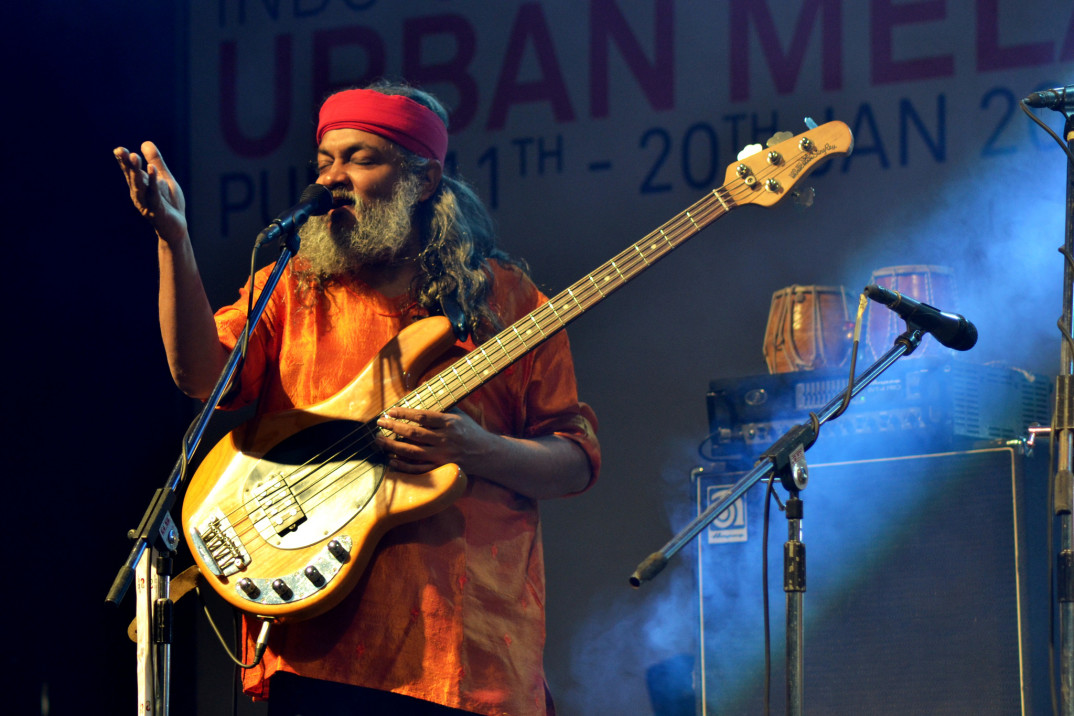Rebellion and Passion in India’s Indie Music Scene
The world only knows Indian music from Bollywood’s “filmy” ballads and cinematic love songs. Music in India seems to enter the world in few forms other than through the cinema industry. However, Bollywood does an incomplete job of representing the music of India just as the iTunes charts would to America—representing only the big, mainstream record artists. Under the wraps of a Bollywood-obsessed entertainment scene, there is a burgeoning independent Indian music industry that is teeming with life and passion. It is young, determined, and rebellious. This indie music industry surfaces many interesting questions about art’s long–standing struggle against capitalist values and the role of anti-establishment industries in societies like India’s.
First, let’s talk about this new and intriguing Indian indie music scene. For our purposes, “indie” shall describe work produced without major record labels, either through smaller labels or self-releases.
In the pre-2000s, to listen to Indian music most likely meant either indulging in classical Carnatic music, Hindu ragas, or mainstream Bollywood songs showcased in the popular movies. In niche audiences, however, indie bands like Indian Ocean and Usha Uthup were pioneering the perilous way for indie artists in the 1990s. They created sounds that were unique from the mainstream, and sparked the “indie” flame among young audiences in Mumbai and Delhi.
These artists sensed the divide between the interests of musicians and those of record label owners. The disconnect in values comes from an artist’s goal of creating music for the sake of music versus the goal of a major record label; to create music for the sake of money. In his dissertation, Creativity and Commerce in Late Capitalism, Columbia University’s Nathan Gerard comments on the mainstream music industry’s ability to perversely turn “an artist into a ideal worker,” while the “record producers sit in as the powerful capitalists.”
There is something uneasy about the melt of money into art, and we sense it often. As a culture, we see that money has a way of corrupting and distorting art into something less genuine and more manufactured. The values of capitalism, profit maximization, often take away from art’s sanctity and purity as an expression of raw emotion. In India, female artists are often told to thin out their voices, since brute voices on women are unappealing; rock bands are told to incorporate classical Indian tones into their music to make it more digestible to the masses; all while most bands are advised strongly against delving too deep into taboo subject matters. Such modes of restriction limit artist creativity and musical innovation. This perhaps explains why indie industries exist, to encourage artist autonomy over their creative work—which would only further foster a healthy, diverse, and ever-changing music scene.
Cosey Fanny Tutti, the avant-garde member of the 1970s Throbbing Gristle, said in a recent Guardian article that the spirit she looks for in an independent artist is “someone who has a particular approach to their work” and translates that into “how they want it to be [produced] and distributed, and remains true to that.”
Acts like Indian Ocean and Usha Uthup, and the explosion of the internet in the 2000s, have made it significantly easier for indie labels and artists to produce and distribute their music. Artists can now get exposure through mediums like the popular YouTube channel Balcony TV and niche music sharing forums like OK Listen and ReverbNation. In an interview with The Prindle Post, Sagar Kevin Rajiv, a Delhi-based musician from the dynamic indie band, Dhwani, mentioned the television channel, MTV Indies, as “revolutionary for a country that’s been focused on Bollywood for all these decades. Bringing indie music to television has helped emerging artists by providing them with a platform to reach larger audiences.”
In response to such dynamism and movement in the indie industry, the editor of Rolling Stone India, Lalitha Suhasini, said that the country is going through what the US and the UK experienced musically in the 70s and 80s: “Indian music history is being written, as we speak, and as far as alternative music is concerned … [we are] right in the thick of it.”
Dhruv Singh, founder of the Pagal Haina Indie Label, does call attention to a blemish in this narrative of a blossoming and colorful indie music scene. In a recent interview with 101 India, Singh said, “the biggest challenge [to the indie industry in India] remains the finances. Indie labels alone do not make any money. To survive, you cannot just be a label.” In this light, indie labels and artists face many obstacles when it comes to carving out their own cultural enclave in the country already dominated by Bollywood. Frequent struggles that Indian artists encounter include delayed payment schedules, sometimes up to six months; a lack of agreed-upon standards for responsible creative-sharing; no enforceable minimum wage; and exploitation at the hands of venue owners.
In face of such obstacles, why rage against the establishment? Perhaps there is value to preserving art’s position in society as “a vehicle of our common humanity” rather than “a revenue-generating industry,” as proposed by Polo Burguete in Bon Iver and the Economics of Art for Art’s Sake.
India’s music represents something innate about its culture—its experiences, its feelings, and its mindset. And in a Bollywood industry filled with labels attempting to monetize this culture, the new indie labels pose themselves as havens of authenticity. Rajiv of Dhwani added that indie music stands to “promote raw talent with a certain offbeat character to it. Therefore, authenticity ultimately becomes part and parcel of the bands and musicians.” These musicians represent India’s progressive youth, changing demographics, and constant cultural diffusion; making indie music the voice of the rogues breaking away from a predisposed status quo. It is uplifting to watch India’s current indie bands boldly claim their own place in culture—unafraid to a radiate fresh, new energy into the world of Indian music.





